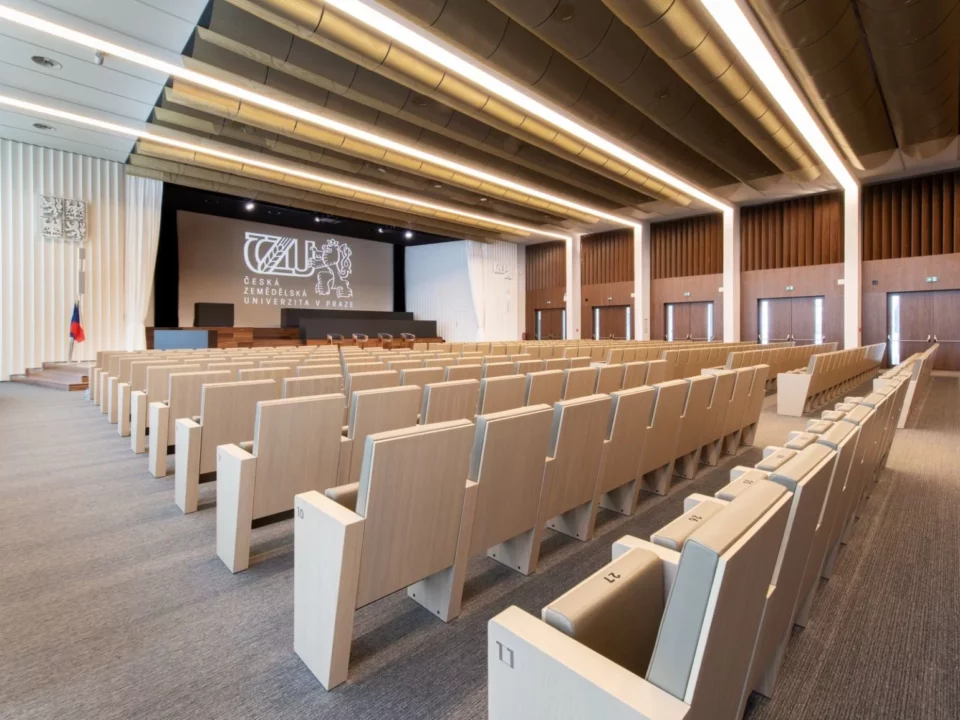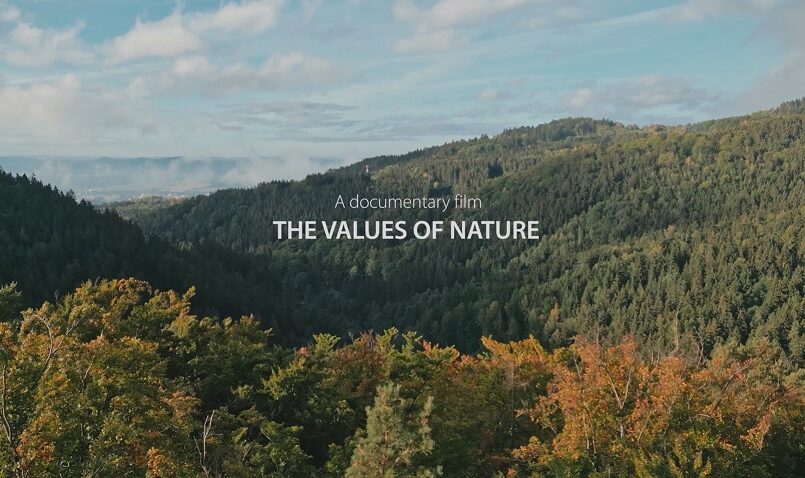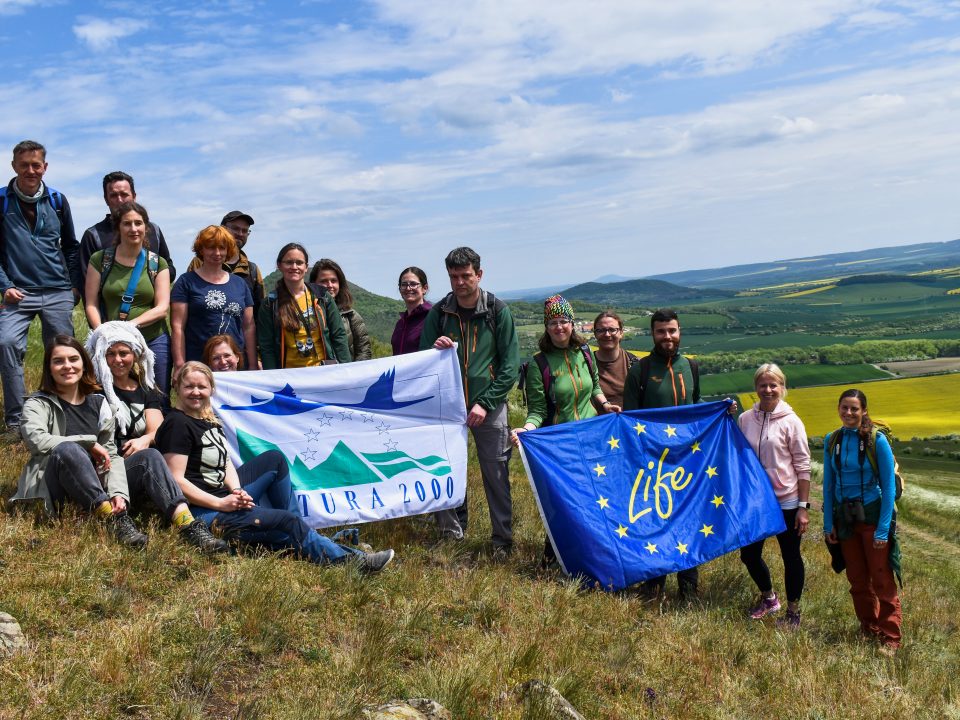The One Nature Project presented itself at the ESP Europe Conference
On 7 to 10 June 2021, the third Ecosystem Services Partnership (ESP) Europe Conference entitled “Ecosystem Services Science, Politics and Practice in the Face of Global Changes” took place in Tartu, Estonia.
At this year’s meeting, representatives from different countries discussed current trends in ecosystem services research and their use in practice, especially with regard to the ever significant effect of humans on ecosystems in the form of not only their transformation or climate change, but also nature conservation. The Conference was originally supposed to take place last year and, after a one-year delay due to the current pandemic situation, it finally took place in hybrid form. Most participants joined the online videoconferencing system, so the conference halls at the Estonian University in Tartu remained mainly empty.

From the ESP Conference 2021
An overview and outputs of the One Nature project were presented by representatives of the Global Change Research Institute (CzechGlobe) in two thematic sections. They introduced the Czech experience with the evaluation of ecosystem services at national level, together with experience in other European countries (Hungary, Estonia, Greece, France, Bulgaria and other countries, including European overseas territories).
“For the One Nature Project, it is very important to be in contact with international events, such as the processes to evaluate and map ecosystem services in Europe, and to discuss experience in similar projects in other countries, which is made appropriately possible at international events and networks, such the Ecosystem Services Partnership,” says Davina Vačkářová, project manager, representing CzechGlobe, who initiated the inception of international cooperation with ESP in the Czech Republic.
At the conference, she also introduced the approach to mapping and evaluation of ecosystem services, including the intention to establish the National Ecosystem Services Platform in the Czech Republic. The part dedicated to national MAES (mapping and evaluating ecosystem services projects) brought interesting experience from countries at different stages of national evaluations.
Jan Daněk, also from the CzechGlobe, introduced the activities of the One Nature project consisting in the involvement of actors in the process of mapping and evaluating ecosystem services.
The participants and especially the lecturers shared their experience with a usually long process leading from the implementation of the national ecosystem services evaluation to the actual implementation of the results, i.e. the use of evaluation in practice. Most contributions presented selected outputs of ecosystem services evaluation in Estonia, Slovakia, Macedonia and Italy and reflected their use in policy creation or decision making at different levels. Jan Daněk spoke for the Czech Republic; he presented the process of integrating key actors of the One Nature project into the evaluation of ecosystem services so that the outputs of the evaluation itself are relevant to key actors and most useful in practice.
Ecosystem services contribute to both economy and quality of life and health
Ivana Žížalová and Johana Drlíková from the CzechGlobe provided reflection in other interesting sections aimed at links between ecosystem services, contemporary pandemic crisis, health and adaptation measures in cities.
The section Natural environment, ecosystem services and public health in times of crisis dealt mainly with the influence of a natural environment on health, both in the context of global change and in the context of the Covid-19 pandemic. For example, Melissa Marselle from the University of Surrey mentioned that most green areas (like trees, parks or forests) have a positive effect on mental health. The negative effect was found only for dense vegetation that raises feelings of fear.
The issues of nature-based solutions and green and blue infrastructure in cities were discussed at several sections and blocks at the ESP conference. For example, Constance Brouillet from ETH presented an interesting lecture on the resilience of cities, related to the coronavirus pandemic during lockdown in Zurich, Switzerland. She sought appropriate ways for the city to absorb an increased demand for recreation and brought in the typology of open spaces in cities. Detailed maps covering walking around the city at the time of pandemic were attractive and understandable. It was clearly shown that the pandemic has intensified the pressure on recreational areas in cities and their proximity. Quiet areas are quite essential for pedestrian movement, accessible by public transport.
Summary of the Conference
The ESP Conference offered a very wide variety of attractive topics from the overview of processes of national ecosystem services evaluations and mapping to relatively specialized topics. At the same time, it demonstrated the progress that ecosystem services as the benefits for the society have made over a long period. From this point of view, the presentations by key speakers were also attractive.
Erik Gomez-Baggethun, President of the European Society for the Ecological Economy, followed and confronted the current shift from ecosystem services to the benefits of nature for people (NCP).
Increasing attention is being paid to further evaluations of ecosystem services for ecosystem accounting (SEEA EA), which were reflected and discussed in several sections at the ESP Conference, including the presentation of tools and accounts to include nature’s contribution to economic activity and quality of life.
Generally speaking, the Conference was a very beneficial event both in terms of the presentation of the One Nature project and further development of the evaluation of socio-economic benefits of the Natura 2000 network at the national level.








